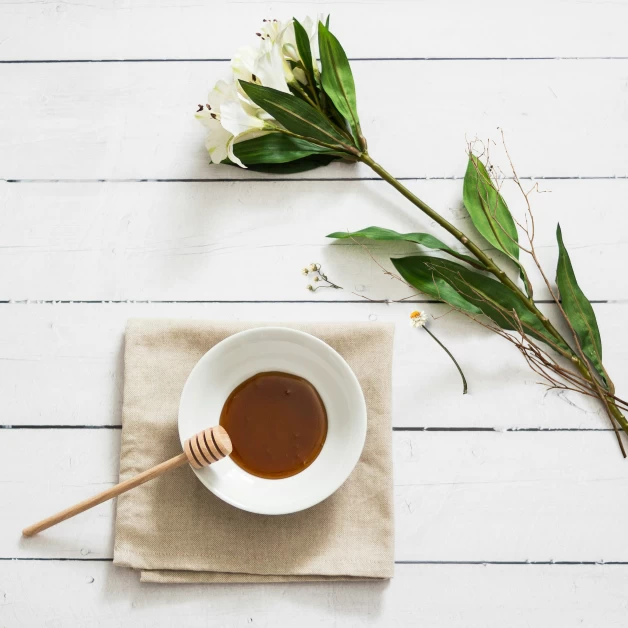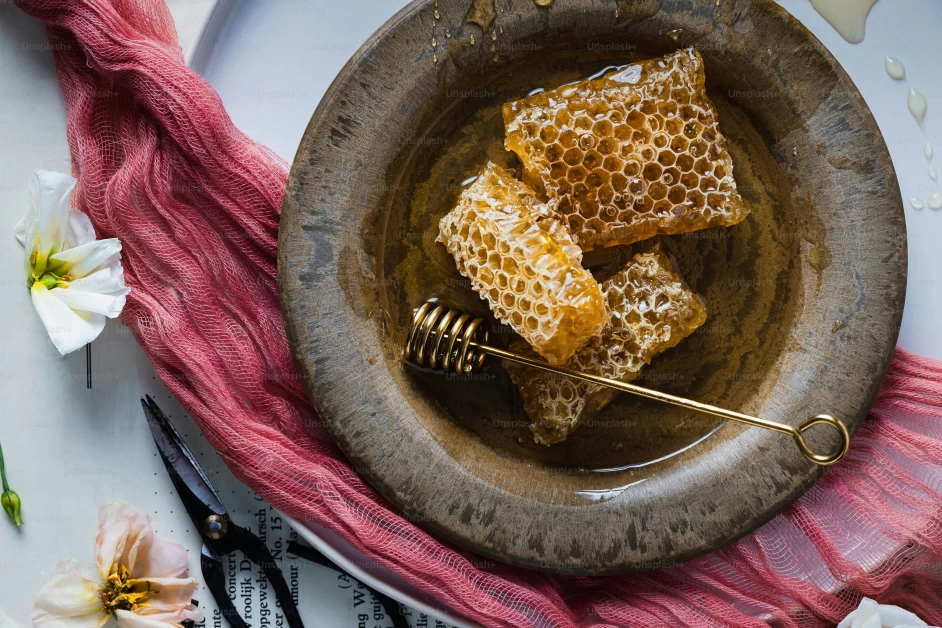Introduction
When it comes to feeding your cat, it’s important to be aware of what foods are safe and beneficial for them. One food that often comes up in discussions is honey. While honey can have some health benefits for humans, it’s important to consider whether it is safe for cats as well. In this article, we will explore the use of Manuka honey for cats and whether it can provide any benefits to our feline friends.
Is Honey Safe for Cats?
Contrary to popular belief, honey is not safe for cats to consume. Cats lack the necessary enzymes to break down the sugars found in honey, which can lead to various digestive issues. If a cat consumes large amounts of honey, it may experience gagging, regurgitation, vomiting, and diarrhea. Therefore, it is best to avoid feeding honey to your cat to prevent any potential health problems.
Can Cats Eat Honey?
While it is generally not recommended to feed honey to cats, there is a specific type of honey that can be safe for them in small amounts. Manuka honey, which is derived from the nectar of the Manuka tree in New Zealand, has been found to have unique antibacterial properties. This type of honey has been used to treat wounds and promote healing in various animals, including cats.
How Much Manuka Honey Can I Give My Cat?
If you decide to give your cat Manuka honey, it’s important to do so in moderation. Only a small amount, no more than half a teaspoon per day, should be given to your cat. This ensures that they receive the potential benefits of the honey without overloading their system with sugars that they cannot properly break down.
Can I Put Manuka Honey on My Cat’s Wound?
Manuka honey can be used topically on your cat’s wounds to help promote healing. Its antibacterial properties can help prevent infection and speed up the recovery process. Before applying honey to your cat’s wound, make sure to clean the area thoroughly and consult with your veterinarian for proper guidance on the application.
How Can Manuka Honey Help Cats with Flu?
While Manuka honey is known for its antibacterial properties, it does not have the same effectiveness against viral infections such as the flu. While honey may provide some relief for symptoms such as a sore throat, it is not a cure for the flu in cats. If your cat is displaying flu-like symptoms, it is best to consult with your veterinarian for appropriate treatment options.
Other Natural Antibiotics for Cats
Aside from Manuka honey, there are other natural antibiotics that can be beneficial for cats. These include:
-
Colloidal Silver: Colloidal silver is known for its antimicrobial properties and can be used to treat bacterial infections in cats.
-
Bee Propolis: Bee propolis is a resin-like substance produced by bees and has been used for its antibacterial and antifungal properties.
-
Juniper Berry: Juniper berries have natural antiseptic properties and can be used to treat minor wounds and skin irritations in cats.
-
Echinacea: Echinacea is an herb that can help boost the immune system and fight off infections in cats.
It’s important to note that while these natural antibiotics can be beneficial, it is always best to consult with your veterinarian before using them on your cat.
Using Manuka Honey as an Antibiotic for Cats
Manuka honey can be used as a natural antibiotic for cats due to its antibacterial properties. It can be applied topically to wounds to help prevent infection and promote healing. However, it is important to remember that Manuka honey should only be used as a supplement to proper veterinary care and should not be used as a substitute for prescribed antibiotics.
How Long Should You Leave Honey on a Wound?
When using Manuka honey on your cat’s wound, it is recommended to soak a gauze pad with honey and apply it to the wound. The excess honey should be wiped off, and the dressing should be left on the wound for 12-24 hours at a time. If there is still a significant amount of drainage, the dressing can be changed as needed. Once the wound stops draining, the dressing can be left in place for up to one week.
What Can I Put on My Cat to Heal a Sore?
If your cat has a sore, there are several options for promoting healing. In addition to Manuka honey, you can also use antibiotic ointments or creams such as Triple Antibiotic Ointment or Bacitracin. These can be applied directly to the wound to help prevent infection and aid in the healing process. However, it is always best to consult with your veterinarian for proper guidance on treating your cat’s specific sore.
Safe Antiseptics for Cat Wounds
When it comes to cleaning cat wounds, there are several safe antiseptics that can be used. These include:
-
Hydrogen Peroxide: Hydrogen peroxide can be used to clean minor cuts and abrasions in cats. However, it should be used with caution as it can damage healthy tissue if used in high concentrations or for extended periods.
-
Isopropyl Alcohol: Isopropyl alcohol is another option for cleaning wounds in cats. It can help disinfect the area and prevent infection. However, like hydrogen peroxide, it should be used with caution and only in small amounts.
-
Chlorhexidine: Chlorhexidine is an antimicrobial disinfectant that can be used to rapidly defend against a wide range of microorganisms, including bacteria. It is safe to use on cat wounds and can help prevent infection.
When using any antiseptic on your cat’s wounds, it is important to follow the instructions provided and consult with your veterinarian if you have any concerns.
Why Do Some Cats Love Honey?
While cats generally do not have a taste for sweet foods, some may show curiosity towards honey. This could be due to the unique smell and texture of honey, which can pique their interest. However, it’s important to remember that just because a cat shows interest in honey does not mean it is safe or beneficial for them to consume.
Can I Rub Honey on My Cat’s Gums?
In certain situations, such as when a cat shows signs of hypoglycemia, small amounts of sugar can be rubbed on their gums to help raise their blood sugar levels. Honey or corn syrup can be used for this purpose. However, it is important to consult with your veterinarian before attempting this and to follow their guidance on appropriate treatment for your cat’s specific condition.
Can Cats Have Peanut Butter?
While some cats may enjoy the taste of peanut butter, it is generally not recommended to feed it to them. Peanut butter provides little to no nutritional value for cats, and certain ingredients, such as added artificial sweeteners, can be harmful or even toxic to them. It is best to avoid feeding peanut butter to your cat and opt for more appropriate treats and foods.
Is Tuna Good for Cats?
Tuna is a popular food choice for cats, and while it can be given to them occasionally, it should not be a regular part of their diet. Tuna that is packed for humans may not provide all the necessary nutrients that cats need for a balanced diet. Additionally, some tuna can contain high levels of mercury, which can be harmful to cats. If you choose to give your cat tuna, it should be in moderation and as a treat rather than a staple food.
Can Cats Have Cheese?
Cats can have cheese in small amounts and moderation. While some cats may enjoy the taste of cheese, it should not make up a significant portion of their diet. Cheese is high in fat and lactose, which can be difficult for cats to digest. It is best to offer cheese as an occasional treat rather than a regular part of their meals.
Can a Cat Have Yogurt?
Plain and unsweetened yogurt can be given to cats in small amounts. While cats are generally lactose intolerant, the lactose in yogurt is easier for them to digest due to the live bacteria present in the yogurt. However, it is important to note that not all cats will tolerate yogurt well, and it should be introduced in small quantities to assess their individual reactions.
Homemade Antiseptic for Cat Wounds
If you prefer to use a homemade antiseptic for your cat’s wounds, you can create a mixture using 1 pint of water, 1/2 teaspoon of salt, and 1/2 teaspoon of calendula tincture. Soak a clean cloth or gauze in the solution and gently apply it to the wound. This homemade antiseptic can help clean the wound and promote healing. However, it is still recommended to consult with your veterinarian for proper guidance on treating your cat’s wounds.
Treating Cat Wounds at Home
In some cases, you may be able to treat your cat’s wounds at home without going to the vet. This includes cleaning the wound with warm water and a mild saltwater solution, removing any debris, and applying an appropriate antiseptic. However, it is important to closely monitor the wound for any signs of infection or worsening condition. If the wound does not improve or if your cat shows signs of pain or discomfort, it is best to consult with your veterinarian for further evaluation and treatment.
Can a Cat’s Open Wound Heal on Its Own?
Minor wounds in cats can often heal on their own, especially if they are superficial and limited to the skin. However, it is important to monitor the wound closely and ensure that it is kept clean to prevent infection. If the wound shows signs of worsening or does not appear to be healing, it is best to seek veterinary attention to prevent any complications.
Is Manuka Honey Better Than Neosporin?
Both Manuka honey and Neosporin can be effective in promoting wound healing, but they have different mechanisms of action. Manuka honey has unique antibacterial properties that can help prevent infection and promote healing. Neosporin, on the other hand, is an antibiotic ointment that can also help prevent infection. The choice between the two depends on the specific needs of your cat and the recommendation of your veterinarian.
Can You Put Honey Directly on Wounds?
Honey, especially Manuka honey, can be applied directly to wounds to promote healing. Its antibacterial properties can help prevent infection and its moisturizing properties can aid in the recovery process. However, it is important to clean the wound thoroughly before applying honey and to consult with your veterinarian for proper guidance on its application.
How to Treat a Cat Wound at Home
If you need to treat a cat wound at home, follow these steps:
-
Clean the wound: Use warm water and a mild saltwater solution to gently clean the wound. Remove any debris or foreign objects.
-
Apply antiseptic: Use an appropriate antiseptic, such as hydrogen peroxide or chlorhexidine, to disinfect the wound and prevent infection.
-
Dress the wound: Apply a clean dressing, such as a sterile gauze pad, to the wound to protect it and promote healing. Change the dressing as needed.
-
Monitor for signs of infection: Keep a close eye on the wound for any signs of redness, swelling, discharge, or pain. If these symptoms occur, seek veterinary attention.
Is Coconut Oil Good for Cats?
Coconut oil can be beneficial for cats when used in moderation. It can improve the absorption of certain nutrients and provide some moisturizing properties for the skin and coat. However, it is important to start with small amounts and monitor your cat’s reaction. Some cats may not tolerate coconut oil well and may experience digestive upset. Always consult with your veterinarian before introducing any new supplements or treatments.
Can You Give Honey to a Diabetic Cat?
If your cat is diabetic, it is generally not recommended to give them honey. Honey is high in sugars and can cause a spike in insulin levels, leading to further complications for diabetic cats. It is best to consult with your veterinarian for appropriate dietary recommendations for your diabetic cat.
Conclusion
In conclusion, while honey can have some health benefits for humans, it is generally not safe or beneficial for cats to consume. However, Manuka honey, with its unique antibacterial properties, can be used topically on cat wounds to promote healing. It is important to use Manuka honey in moderation and consult with your veterinarian for proper guidance on its use. Additionally, there are other natural antibiotics and antiseptics that can be beneficial for cats, but it is always best to consult with your veterinarian before using them.









